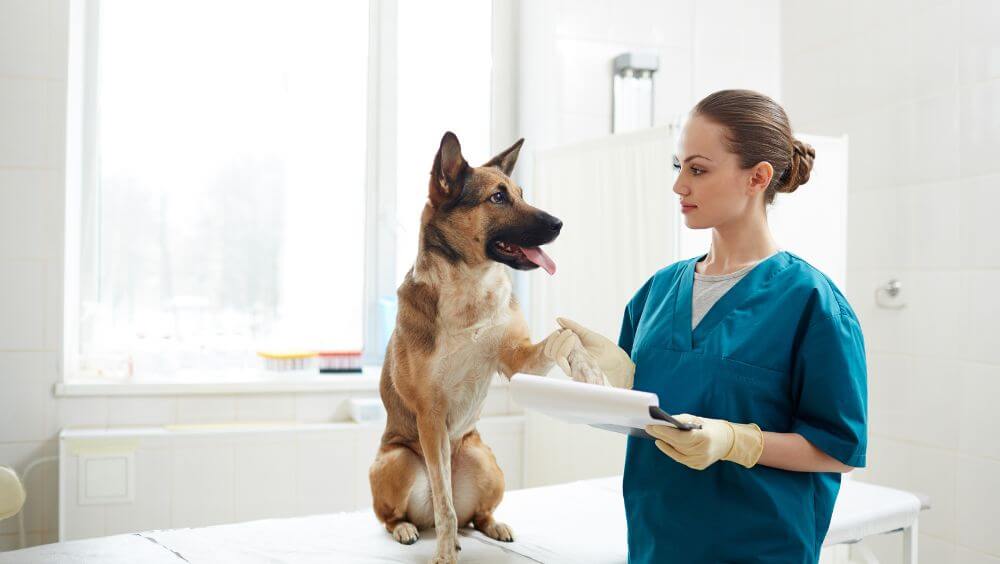
Sensitive skin in dogs is a common problem that can cause a great deal of discomfort for our pets. Skin allergies in dogs can manifest themselves in a variety of ways, and it is essential to understand how to recognize and treat these problems in order to ensure the well-being of our furry friends. In this article, we will cover everything you need to know about sensitive skin in dogs and dog skin allergies, from causes and symptoms to treatments and preventative care.
Causes of sensitive skin in dogs
Sensitive skin in dogs can be caused by a variety of factors. Some of the most common causes include:
- Food Allergies: Allergies to certain ingredients in dog food, such as chicken, wheat, soy, or dairy, can cause skin problems. These allergens can lead to inflammation, itching, and other symptoms of sensitive skin in dogs.
- Environmental Allergies: Allergens present in the environment, such as pollen, dust, mites, and mold, can also affect dogs’ skin. These environmental allergies can be seasonal or persistent throughout the year.
- Parasites: External parasites such as fleas, ticks, and mites can cause skin irritation and sensitivity. Flea bites, in particular, can lead to allergic dermatitis, a common condition in dogs.
- Chemicals: Grooming products such as shampoos and conditioners that contain harsh chemicals can irritate dogs’ skin. It’s important to use products specifically formulated for sensitive skin.
- Genetics and Prone Breeds: Some dog breeds are more prone to sensitive skin due to genetic factors. For example, Bulldogs, Golden Retrievers, and Terriers tend to have a higher predisposition to skin problems.

Symptoms of allergies and sensitive skin in dogs
Identifying the symptoms of allergies and sensitive skin in dogs is crucial to being able to intervene early and prevent the problem from getting worse. The most common symptoms include:
- Excessive itching and scratching: Dogs with sensitive skin often scratch frequently, especially in areas such as the ears, abdomen, and paws.
- Redness and irritation: The skin may appear red and swollen, indicating an allergic reaction or irritation.
- Hair loss: Hair loss in patches can be a sign of skin problems. This can occur due to constant scratching or a severe allergic reaction.
- Scabs and flaking: The presence of scabs, dry skin, or flaking is another common symptom of sensitive skin in dogs.
- Sores and infections: In more severe cases, sensitive skin can lead to open sores and secondary bacterial or fungal infections.
Diagnosis and veterinary consultation
If you suspect your dog has sensitive skin or is suffering from skin allergies, it’s critical to see a veterinarian. Proper diagnosis is essential to determine the underlying cause and establish an effective treatment plan. Your veterinarian may perform several tests, including:
- Allergy tests: These tests can help identify specific allergens that are causing your dog’s skin reaction.
- Blood tests: Blood tests can provide information about your dog’s overall health and detect possible infections or nutritional deficiencies.
- Skin biopsies: In some cases, it may be necessary to take a skin sample for closer examination under a microscope.

Effective tools for your pet’s skin health
Treatment for allergies and sensitive skin in dogs depends on the underlying cause. Some treatment options include:
- Hypoallergenic diet: Switching to a hypoallergenic diet can help reduce food allergic reactions. These foods are formulated without common allergens and may be beneficial for dogs with food allergies.
- Antihistamines and Anti-Inflammatory Medications: Antihistamines can help reduce itching and inflammation in dogs with allergies. In some cases, veterinarians may prescribe corticosteroids or anti-inflammatory medications to control more severe symptoms.
- Topical Treatments: Medicated shampoos and conditioners can relieve irritation and itching. It’s important to choose products specifically designed for sensitive skin and avoid those with harsh fragrances or chemicals.
- Parasite Control: Using preventative flea and tick treatments is essential to avoid infestations that can cause skin problems. There are collars, pipettes, and pills that can help keep your dog parasite-free.
- Nutritional supplements: Omega-3 and omega-6 fatty acid supplements can improve the health of a dog’s skin and coat. These supplements have anti-inflammatory properties and may be beneficial for dogs with sensitive skin.
- Immunotherapy: For dogs with severe allergies, immunotherapy (also known as “allergy shots”) may be an option. This treatment involves administering small doses of the allergen to desensitize the dog’s immune system.

Preventive care for dogs with sensitive skin
Preventing skin problems in dogs with sensitive skin requires a proactive and consistent approach to daily skin care. Here are some recommendations for keeping your dog’s skin healthy:
- Regular Baths: Bathe your dog with a mild, hypoallergenic shampoo. Avoid bathing your dog too often, as this can strip the natural oils from his skin and make sensitivity worse.
- Frequent Brushing: Brush your dog regularly to remove loose hair and debris from the skin. This can also help distribute natural oils and keep the skin and coat healthy.
- Clean Environment: Keep your dog’s sleeping area clean and free of dust and allergens. Wash his bed and toys regularly to minimize exposure to allergens.
- Balanced Diet: Provide a balanced, high-quality diet that covers all of your dog’s nutritional needs. Consult your veterinarian about the best diet for your dog, especially if he has food allergies.
- Proper Hydration: Make sure your dog has constant access to fresh, clean water. Hydration is crucial to maintaining healthy skin.
Essential care for dogs with sensitive skin
Sensitive skin in dogs and dog skin allergies are conditions that require special attention and care. Identifying the underlying causes and symptoms is the first step in providing the right treatment and improving your pet’s quality of life. Consulting a veterinarian and following their recommendations is critical to effectively managing these issues.
Remember that every dog is unique, and what works for one may not be right for another. Watch your dog closely and adjust their care as needed to ensure their skin is as healthy as possible. With the right care and the right treatments, you can help your dog live a comfortable life free of skin problems.













